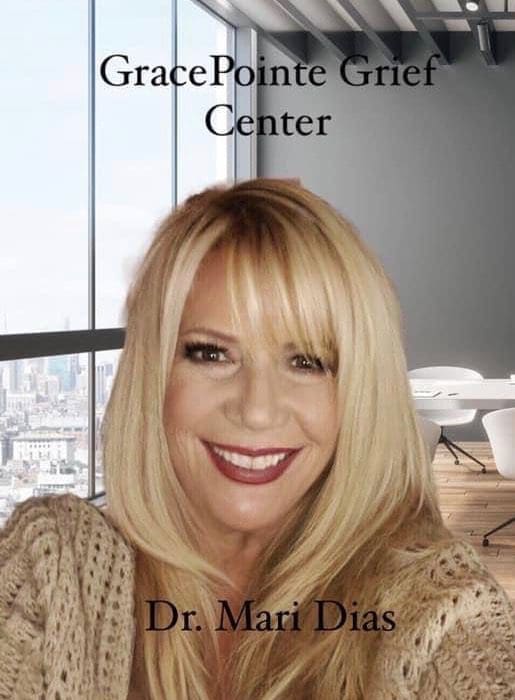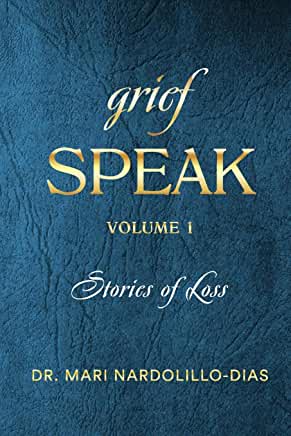Search Posts
Recent Posts
- Rose Island experts Sean O’Connor and Michael Simpson – G. Wayne Miller, Ocean State Stories June 11, 2025
- Time for Sour Grapes! – 6.11.25 – Tim Jones June 11, 2025
- Rhode Island Weather for June 11, 2025 – Jack Donnelly June 11, 2025
- What you should know about Social Security if your spouse passes away – Cheryl Tudino, SSA June 11, 2025
- It is what it is… 6.11.25 – Jen Brien June 11, 2025
Categories
Subscribe!
Thanks for subscribing! Please check your email for further instructions.

GriefSpeak: We are all so much more than anything that has been done to us – Dr. Mari Dias
By: Dr. Mari Dias, contributing writer
“We need not shrink to become digestible” (Anonymous)
I asked 11-year-old Kevin to tell me his story.
“What story?’ he asked.
“I don’t have a story.”
“Everyone has a story, Kevin. It is the story of our lives and loss.” So… can you tell me your story of loss?”
“Well, I know you are a grief therapist. And I know what grief is. But I don’t have a story of loss. My bio mom died when I was a baby. She was an addict. But I didn’t know her so… she is the only one that I know who died.”
“Well Kevin, sometimes we grieve over a loss that is not death related.” We can grieve over a lot of life situations. Why don’t you tell me your story, and together we will decide if you are grieving any of life’s circunstances.”
Kevin agreed.
“Well, I guess my story starts when I was born. DCYF took me away from my bio mom in the delivery room. Mom had given up her rights to 4 other children, so DCYF thought that it wasn’t safe for me to go home with her. Plus, I was born addicted because my bio mother used drugs while she was pregnant with me, and I was very little, so I went into the NICU for a few months until I could get unaddicted and get bigger and stronger. After that, DCYF took me to a foster home with lots of other kids.
“How long did you stay at the foster home?” I asked.
“Well, for that one I was there for about 2 years. My bio mom got clean by then and I was allowed to have supervised visits once every other week.” My CASA volunteer would meet me at McDonalds and the social worker would be with my biological mom and we would have lunch.”
“Kevin, excuse me for the interruption, but I can’t help but notice that you always refer to your birth mom as your biological or bio mom. Can you explain that a bit to me, so I’m not confused?”
“Sure. When the social workers talk about all the people in my life, they always use the words “bio mom” so that’s what I call her. I only had 4 supervised visits before I was told that she died from an overdose. I don’t remember being sad because I only knew her four times. I did think it was maybe my fault that she died, you know, but I heard the social workers say it was an “unintended overdose.” Which means she didn’t kill herself. It was a mistake. So, it’s not my fault.
“Kevin, where is your “bio dad”?
“I don’t know. I never met him, and my bio mom didn’t exactly know who he was. When I’m older I guess I could do one of those DNA tests. My bio mom named me Kevin and gave me her last name on my birth certificate.
“Okay, Kevin so where did you go after that first foster home?”
“I went to another foster home. My foster mom was not very nice. She only let us eat once a day, wouldn’t let us play outside and hit us a lot. I remember that house being very dirty, and my foster dad made us clean the house whenever he came home mad drunk. I stayed there until I was about 8. They didn’t want me anymore. They told the social workers that I was too difficult; I “acted out” and they always received letters from my teachers about my behavior. I was diagnosed with ODD. (Oppositional Defiant Disorder). Then I moved into a shelter. I didn’t even have my own clothes. No socks or shoes. It sucked.”
“Kevin, what does that mean to you? The diagnosis I mean?”
“Well, they told me it means that I don’t pay attention to adults, and I don’t listen. Sometimes I get angry when my teacher tells me to do something, so I throw a desk or punch something. That’s when they put me in this treatment center in New Hampshire. I have to live here, go to therapy and groups and try to change my behavior.
That’s where I am now. I don’t know for how long… Or where I will go next.”
Kevin went on to tell me that he has made some good friends at the treatment center, he loves his therapists and social workers but hasn’t been able to see them a lot in person because of the pandemic and is fearful of an unknown future. He misses school. He hopes he gets a nice foster family or gets adopted. He also expressed an interest at some point in finding his bio mom’s other 4 children who were adopted, as they are his half siblings. During our second conversation, Kevin expressed anger at his situation, disclosed sexual abuse as a toddler and hopeful that he will be able to be less angry and not use drugs “like his mom”.
We spoke about grief, and the feelings associated with it. I invite you, the reader to think about what losses Kevin has experienced. Do you recognize that he is grieving loss of a traditional childhood, bonding with his bio mom as a newborn, parents, safety, consistency and a stable future? What else might he have lost?
Kevin realizes that anger is a response to loss, and not so different than other’s response to loss. Anger is depression turned outward, and as an emotion oftentimes easier to work with than depression. Kevin’s losses are powerful and numerous. He has experienced a number of adverse childhood experiences, yet luckily an effective intervention was made. The intervention is not a punishment but rather a lifeline. A lifeline to foster resilience and success. We all need to be observant and aware of behaviors, thoughts and emotions of children. We need not see children like Kevin as damaged because their environment has failed them. Actually, given Kevin’s story I would wonder why he wasn’t angry and acting out. It’s a coping mechanism. Any one of us would be as well. Another option might result in a “fluency in silence,” the worse outcome. We are all so much more than anything that has been done to us. We need not shrink to become digestible (anonymous). We can all change and grow. Despite anything. And everything. Time has great healing powers, and human beings have great resilience. Let’s “foster” their resilience.
_____

Dr. Mari Dias is a nationally board-certified counselor, holds a Fellow in Thanatology and is certified in both grief counseling and complicated grief.
She is Professor of Clinical Mental Health, Master of Science program, Johnson & Wales University. Dias is the director of GracePointe Grief Center, in North Kingstown, RI. For more information, go to: http://gracepointegrief.com/

Dr. Dias is the author of GriefSpeak – Stories of Loss

Good article